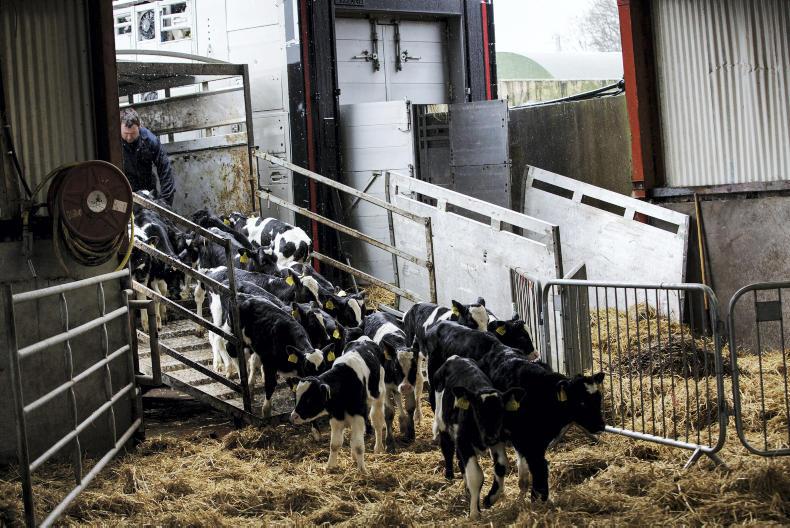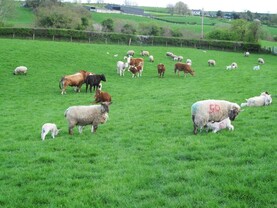Ahead of the spring calving season, Minister for Agriculture Michael Creed has announced a number of new measures tightening controls on the live export of animals.
The majority of measures are focused on dairy bull calves that travel to Cherbourg in France before moving to veal production units in the Netherlands.
An agreement between the chief veterinary officers in Ireland and France will see binding procedures introduced to control the number of calves that are allowed to be booked into lairages. This will prevent overcrowding in Cherbourg.
During peak season, random unannounced inspections will be carried out by the Department of Agriculture. Vets will accompany calves from Ireland to Cherbourg to verify the welfare of the animals during transport.
Rest
The stop-over period in Cherbourg will be increased by one hour to 13 hours. The additional hour will allow for unloading and loading to ensure calves get the legal requirement of a 12-hour rest.
The Minister also indicated that the Department will step up its enforcement of rules around satellite navigation data next year. Animal transport vehicles must return this information.
Rubber teat-based water drinkers in vehicles for unweaned calves sre mandatory from 1 December. Currently, some vehicles use metal teats. The space allowance for 50kg calves in vehicles will also be increased by 8.3%.
Standards
Other measures include a ban on the use of sticks in assembly centres and a ban on the transport of animals to areas with a weather forecast of 30C or greater.
The Minister said live exports had grown in recent years and that the highest standards in animal welfare were critical to the trade. He said this was why the Department continued “to strengthen our animal welfare standards to ensure that this trade continues in a sustainable manner”.
Read more
Creed in the Netherlands: ‘quality of Irish calves indisputable’
EU veal industry has capacity to absorb Irish calves - exporter group
Ahead of the spring calving season, Minister for Agriculture Michael Creed has announced a number of new measures tightening controls on the live export of animals.
The majority of measures are focused on dairy bull calves that travel to Cherbourg in France before moving to veal production units in the Netherlands.
An agreement between the chief veterinary officers in Ireland and France will see binding procedures introduced to control the number of calves that are allowed to be booked into lairages. This will prevent overcrowding in Cherbourg.
During peak season, random unannounced inspections will be carried out by the Department of Agriculture. Vets will accompany calves from Ireland to Cherbourg to verify the welfare of the animals during transport.
Rest
The stop-over period in Cherbourg will be increased by one hour to 13 hours. The additional hour will allow for unloading and loading to ensure calves get the legal requirement of a 12-hour rest.
The Minister also indicated that the Department will step up its enforcement of rules around satellite navigation data next year. Animal transport vehicles must return this information.
Rubber teat-based water drinkers in vehicles for unweaned calves sre mandatory from 1 December. Currently, some vehicles use metal teats. The space allowance for 50kg calves in vehicles will also be increased by 8.3%.
Standards
Other measures include a ban on the use of sticks in assembly centres and a ban on the transport of animals to areas with a weather forecast of 30C or greater.
The Minister said live exports had grown in recent years and that the highest standards in animal welfare were critical to the trade. He said this was why the Department continued “to strengthen our animal welfare standards to ensure that this trade continues in a sustainable manner”.
Read more
Creed in the Netherlands: ‘quality of Irish calves indisputable’
EU veal industry has capacity to absorb Irish calves - exporter group






 This is a subscriber-only article
This is a subscriber-only article









SHARING OPTIONS: